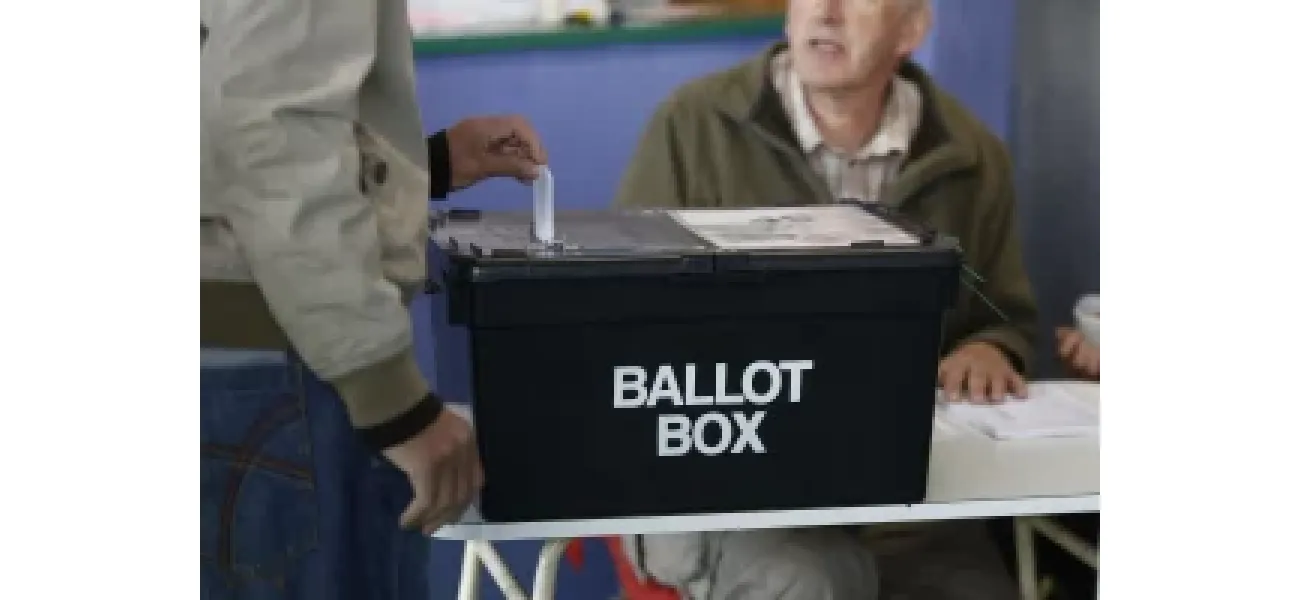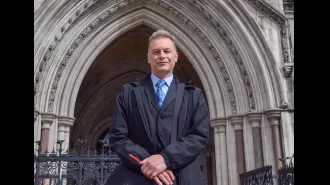At 16, individuals should be allowed to vote as they have the maturity and understanding to make informed decisions.
Young people are often associated with left-wing politics, but as they age, they may shift their perspective away from this ideology.
July 22nd 2025.

There has been a long-standing belief that young people tend to lean towards progressive and pro-poor politics, which is often labeled as Left-wing. However, as individuals age, they are said to shift away from this ideology and look at politics more objectively. This is attributed to the idea that youth are driven by emotions, while maturity brings a balance and reliance on reason. Despite ongoing discussions among experts, the rise of Far-Right politicians in the West has swayed many young minds with their extreme and intolerant beliefs. In light of this, the UK government, led by the Labour Party, has recently announced their decision to lower the voting age from 18 to 16. This move has sparked a debate, with the opposition party claiming that the Labour Party is trying to gain support from the younger generation by allowing them to participate in general elections.
Experts have differing views on the impact of lowering the voting age on democracy and election outcomes. The UK's voting age was last changed in 1969, making it one of the first major democracies to lower it from 21 to 18. Many other countries, including the United States, followed suit in the following years. Now, the UK government plans to lower the age to 16 by the next general election in 2029, bringing it in line with Scotland and Wales, where 16 and 17-year-olds can already vote in local and regional elections.
A handful of other countries, such as Austria, Brazil, and Ecuador, currently have a voting age of 16. Some European Union countries, including Belgium, Germany, and Malta, also allow 16-year-olds to vote in European Parliament elections. Those in favor of lowering the voting age argue that if 16-year-olds can work and pay taxes, they should also have the right to vote. Prime Minister Keir Starmer echoes this sentiment, stating that those who contribute to society should have a say in how their taxes are spent. Pro-democracy organizations have welcomed the lower age and the move towards automatic voter registration, hoping it will increase voting rates, which have been declining in recent years.
Lowering the voting age to 16 may encourage teenagers to develop a habit of voting while still in school. Some argue, however, that this may lead to young voters lacking the political maturity to make informed decisions. On the other hand, many believe that today's youth are more aware and engaged in political issues compared to previous generations. Another concern is the influence of social media, where young people may be easily swayed by false information. However, social scientists argue that full-time students living at home may be more engaged in the voting process compared to those aged 18-20, who are often going through a transitory phase in their lives.
The government's opponents on the Right believe that the Labour Party is using this decision to their advantage, as young voters are said to lean towards Left-wing parties. Nigel Farage, leader of the Far-Right party Reform UK, claims that the Labour Party is trying to manipulate the system. While 16-year-olds make up a small percentage of British voters, they could still have a significant impact in cases of narrow victory margins. Allowing them to participate in the democratic process is a positive step, as their voices should also be heard.
In conclusion, the decision to lower the voting age in the UK has sparked a debate, with different views on its potential impact on democracy and election outcomes. While some argue that young voters may lack the maturity to make informed decisions, others believe that they should have a say in shaping the future of their country. The important thing is to encourage young people to engage in politics and be informed about the issues that affect them. After all, they are the future of our democracy.
Experts have differing views on the impact of lowering the voting age on democracy and election outcomes. The UK's voting age was last changed in 1969, making it one of the first major democracies to lower it from 21 to 18. Many other countries, including the United States, followed suit in the following years. Now, the UK government plans to lower the age to 16 by the next general election in 2029, bringing it in line with Scotland and Wales, where 16 and 17-year-olds can already vote in local and regional elections.
A handful of other countries, such as Austria, Brazil, and Ecuador, currently have a voting age of 16. Some European Union countries, including Belgium, Germany, and Malta, also allow 16-year-olds to vote in European Parliament elections. Those in favor of lowering the voting age argue that if 16-year-olds can work and pay taxes, they should also have the right to vote. Prime Minister Keir Starmer echoes this sentiment, stating that those who contribute to society should have a say in how their taxes are spent. Pro-democracy organizations have welcomed the lower age and the move towards automatic voter registration, hoping it will increase voting rates, which have been declining in recent years.
Lowering the voting age to 16 may encourage teenagers to develop a habit of voting while still in school. Some argue, however, that this may lead to young voters lacking the political maturity to make informed decisions. On the other hand, many believe that today's youth are more aware and engaged in political issues compared to previous generations. Another concern is the influence of social media, where young people may be easily swayed by false information. However, social scientists argue that full-time students living at home may be more engaged in the voting process compared to those aged 18-20, who are often going through a transitory phase in their lives.
The government's opponents on the Right believe that the Labour Party is using this decision to their advantage, as young voters are said to lean towards Left-wing parties. Nigel Farage, leader of the Far-Right party Reform UK, claims that the Labour Party is trying to manipulate the system. While 16-year-olds make up a small percentage of British voters, they could still have a significant impact in cases of narrow victory margins. Allowing them to participate in the democratic process is a positive step, as their voices should also be heard.
In conclusion, the decision to lower the voting age in the UK has sparked a debate, with different views on its potential impact on democracy and election outcomes. While some argue that young voters may lack the maturity to make informed decisions, others believe that they should have a say in shaping the future of their country. The important thing is to encourage young people to engage in politics and be informed about the issues that affect them. After all, they are the future of our democracy.
[This article has been trending online recently and has been generated with AI. Your feed is customized.]
[Generative AI is experimental.]
0
0
Submit Comment





